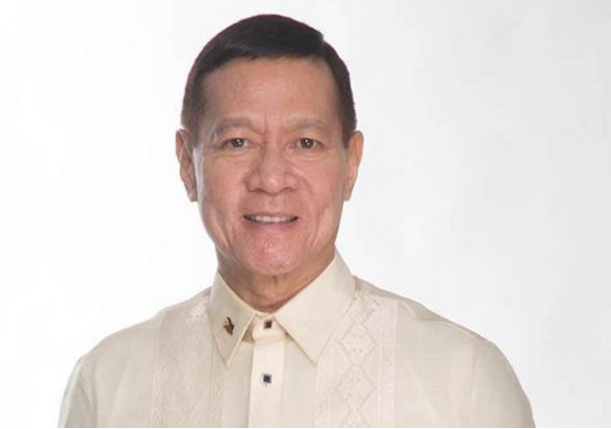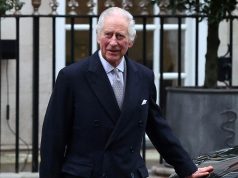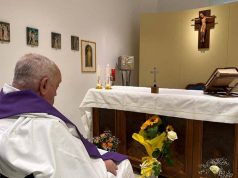MANILA, Philippines – (UPDATE, 1:25PM) The Department of Health announced on Friday, December 1, the suspension of its dengue vaccination program after pharmaceutical firm Sanofi Pasteur disclosed that children who receive its vaccine Dengvaxia® might be at risk of contracting a more dangerous strain if they have not had any prior infection.
DENGVAXIA | Sanofi bares disturbing analysis about dengue vaccine’s efficacy
“In the light of this new analysis, the DOH will place the dengue vaccination program on hold,” Health Secretary Francisco Duque III said. “I repeat, in light of this new analysis, the DOH will the place the dengue vaccination program on hold while review and consultation are ongoing with experts, key stakeholders, and of course the WHO (World Health Organization).”
On November 29, Sanofi issued a public disclosure that said, in part: “Based on up to six years of clinical data, the new analysis evaluated long-term safety and efficacy of Dengvaxia in people who had been infected with dengue prior to vaccination and those who had not. The analysis confirmed that Dengvaxia provides persistent protective benefit against dengue fever in those who had prior infection. For those not previously infected by dengue virus, however, the analysis found that in the longer term, more cases of severe disease could occur following vaccination upon a subsequent dengue infection.”
Duque confirmed the DOH received Sanofi’s disclosure on November 29.

Quoting from the report, he said “the dengue vaccine has shown consistent and sustained benefit for those previously infected with the dengue virus.”
But “for those who were not previously infected by the dengue virus, the analysis found that vaccination led to a benefit in preventing severe illness for at least 30 months. And I repeat, 30 months.”
“In the longer term, severe cases may occur following a subsequent dengue infection among those who were not previously infected,” he added.
SURVEILLANCE, MASTER LIST
Duque said, in a separate radio interview, that the DOH through all its field offices has activated a surveillance mechanism, and is putting together a master list of those who never had prior dengue infections and were vaccinated.
He said the DOH was also seeking a clarification from Sanofi on what exactly it meant by the risk of “severe disease,” whether susceptibility to more virulent strains, or some other disease.
However, Duque assured the public that he’s certain there has been no report of deaths among children who had no prior dengue infection and were vaccinated. He advised parents of children with no prior infections and were vaccinated not to panic, adding, “the DOH is on top of the situation.”
Meanwhile, he said, his office had ordered a review of the DOH contract, forged by then Secretary Janet Garin, with the French pharmaceutical.
The DOH launched its dengue vaccination last year in three highly endemic regions — 3 (Central Luzon), 4A )Calabarzon) and the National Capital Region — with over 700,000 children receiving at least one dose.
Duque estimated that, based on the timeline of the past two doses administered, another round was expected “sometime in January 2018.” The vaccine is administered in three doses.

‘IN LINE WITH WHO ADVICE FOR ENDEMIC AREAS’
Duque said the program was “in line with the recommendation of the World Health Organization for mass vaccination in highly endemic areas, highly endemic countries.”
“Currently, there is no reported case of severe dengue infection among those who received the vaccine,” Duque stressed.
He gave assurances that the DOH “is highly committed in strengthening and intensifying its ongoing surveillance and monitoring to evaluate the program and ensure safety.”
“Let me just stress that the DOH assures the public that it is serious in carrying out its mandate to always guard the health and well-being of its constituents. Thus it shall ensure that vaccines are always safe and effective to optimize its health benefits,” he added.
Duque pointed out that some 200,000 cases of dengue are reported in the country each year and that “vaccination is essential to the integrated approach in dengue prevention and control.”
Dr. Susan Pineda-Mercado, a former DOH undersecretary and chief of staff, and international public health expert and communication strategist, remarked in a Facebook post: “This is the biggest government funded clinical-trial-masked-as-a-public-health-program scam of an experimental drug in the history of the DOH.”
Dr. Mercado observed that the program cost the Philippines PhP3 billion for the vaccines “and so much more now for the risks, anxiety and even lives that are now endangered.
“This was reckless and irresponsible from the start and the public was deceived into thinking this vaccine would protect children from dengue.









